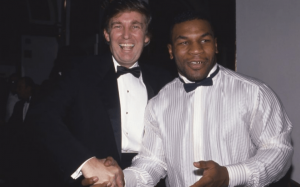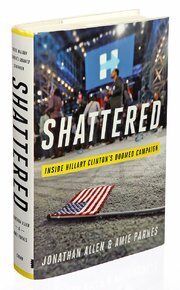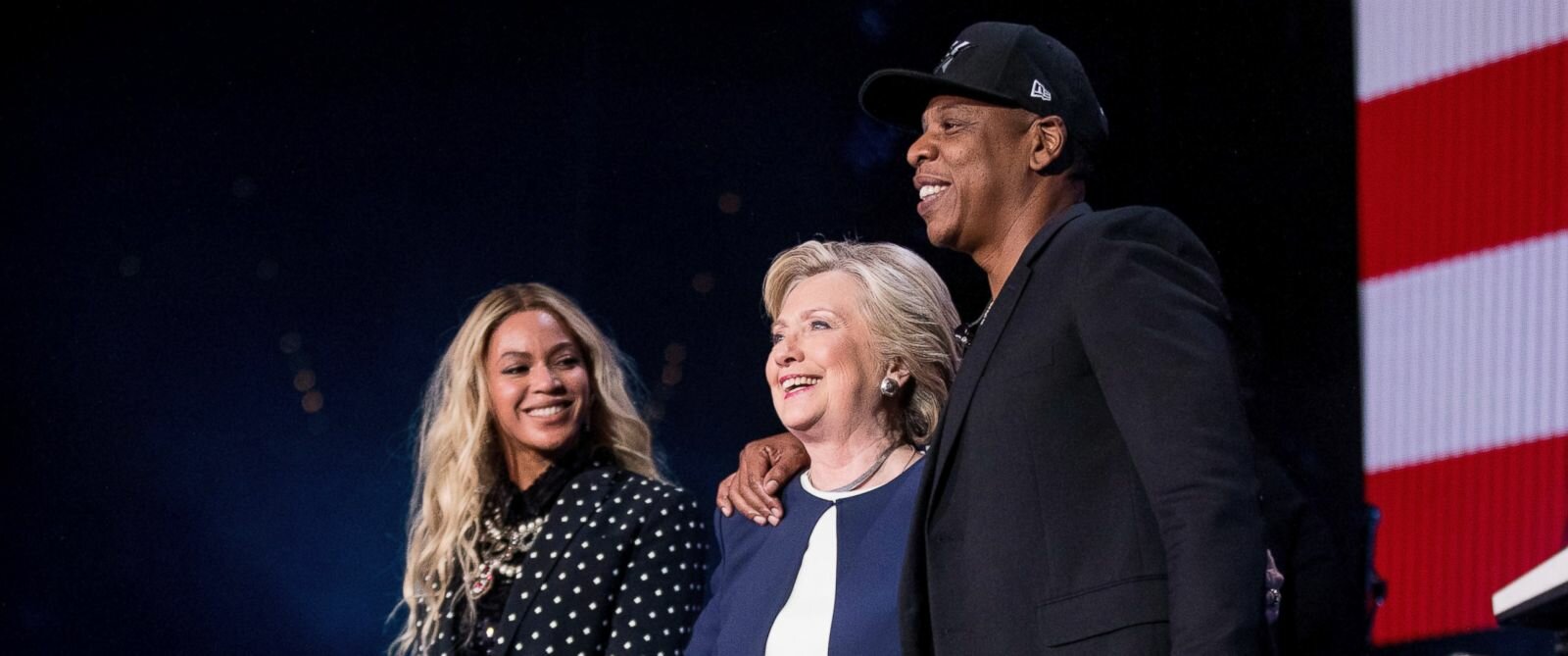Schadenfreude in American Politics
“Normally, we are ambivalent about taking pleasure in the suffering of others. Even if we gain from the suffering, we pull the long face. But misfortunes that seem so obviously deserved liberate our pleasure. Who can suppress the delectable blend of schadenfreude and righteous gloating?”
Richard Smith, Ph.D., writing for Psychology Today
Schadenfreude is a German word which describes the pleasure derived from the deserving pain or misfortune of others. There is no equivalent word in English, but it’s not hard to find examples of it.
Just think of the long-running TV show, America’s Funniest Home videos, or its web-based equivalent, FailArmy. Civilized though we are, most of us can’t help but take some small pleasure in comedic mishaps which inflict a bit (or a lot) of pain on an unwitting victim.
If you have any doubt that the feeling is universal, just look at the number of views on any given FailArmy video. Schadenfreude is a powerful thing. Could it even be strong enough to influence voting habits?
Years ago, social psychologist David Combs studied schadenfreude in the reactions of Democrats and Republics to certain events. He showed his subjects a range of events from elections in the early aughts. Some of these events were “inherently funny”, like George W. Bush falling off a bicycle or John Kerry looking silly in an over-sized space suit — the kind of stuff you’d see on America’s Funniest.
Not surprisingly, Democrats found the Bush mishap funnier than Republicans did and vice versa. The stronger the test subjects identified with one party or the other, the greater the degree of pleasure they got from the opposing figure’s misfortune. In other words, political affiliation increased their schadenfreude.
A writer for the Oxford University politics blog, Oxpol, theorizes that Donald Trump owes some of his success to the effects of schadenfreude. It’s a compelling argument. The overarching theme of the 2016 presidential election was the loss of trust in condescending, out-of-touch American political and media elites. Trump, with his lack of experience and aloofness towards party protocols, seemed to embody this feeling.
Millions of Americans are still hurting from the economic recession in 2010, fuelling anxieties about immigration and globalization. Trump promised to return fire on those who voters blamed for their own suffering. Mexico would pay for the wall. China would get hit with tariffs in return for supposed trade-cheating. American companies who outsourced jobs would face consequences.
His interactions with the media had the same flare. Trump’s ability to send the reporters into a flurry of fact-checking and disdain showed voters he could get back at the shadowy media elitists.
Trump also mocked and belittled his fellow candidates during the Republican primary, to the pleasure of Republicans and Democrats alike. He took the political elite down a peg. Maureen Dowd, a democrat and writer for the New York Times, wrote at the time that, “The most enjoyable thing about the Trump phenomenon has been watching him make monkeys out of a lot of people who had it coming.”
Another writer, Isaac Chotner of Slate, saw the schadenfreude as well. But he was wary to indulge in this pleasure of suffering. He warned, “Those liberals who find themselves rooting for Trump, in the hope that his continued success will only further damage the GOP, are playing with fire—and putting their self-satisfaction ahead of the interests of the country.”
Good call, Isaac.
Shattered: The First Clinton Tell-All is Out
“Mr. President, I’m sorry.”
That is just one of the fraught election night phone calls that mark the climax of the new book Shattered, described as an autopsy of Hillary Clinton’s failed presidential campaign.
President Donald Trump’s victory came as a shock to much of the world. But it would seem just as shocking that the Clinton campaign, with all its pollsters and data and to-the-minute reporting, was caught off guard as well.
According to Jonathan Allen and Amie Parnes, that is exactly what happened.
The Clintons were confident. There was no concession speech, no plan B. The Democratic Party was so stunned by the defeat that it took not one but three phone calls from the White House to coax out a concession.
Journalists Allen and Parnes followed Hillary Clinton’s campaign for a year and a half, reporting on the ins and outs of what was once thought to be the unstoppable push to the presidency. Now, in the aftermath of the loss and the tumultuous months since President Trump’s ascendancy, Allen and Parnes have published an insider look at the years and months leading up to the 2016 presidential election.
They say that hindsight is 20/20, and that seems to be the through line of the Shattered narrative. The book sheds light on signs of trouble that arose months before the big day. Interviews from campaign staff and Clinton camp insiders reveal a dysfunctional state of affairs that pursued flawed tactics and ignored key members of the Democratic party base.
To be sure, President Trump was a new kind of opponent. He was, and still is, a game-changer in American politics. But Shattered indicates that many of Clinton’s challenges came from within — a campaign that refused to adapt to the shifting tides.
Shattered is the first major 2016 tell-all to hit bookstore shelves, and it is sure to benefit from its punctuality. It will not be the last. It remains to be seen if it will be among the best. Regardless, it’s a welcome entry for insider-info-starved fans of Game Change and Double Down.
Did Celebrity Endorsements Matter in the 2016 Election?
The stars aligned for Hillary Clinton.
In her second shot at the Oval Office, Clinton boasted an incredible roster of actors, artists, TV personalities, and sports stars. And her multi-million dollar campaign leveraged these connections in every possible way.
Clinton raffled off tickets to join Jay Z for dinner. Lady Gaga and Katy Perry performed at her rallies. Joss Whedon directed a pro-Democratic PSA starring Robert Downey Jr. and Scarlett Johansson. On election day, Beyonce urged followers to vote for Clinton in a video that drew over 2 million views before the polls closed.
Meanwhile, on the other side of the aisle, the bench was far from full. Nor was it empty – Donald Trump won over the likes of Charlie Sheen, Kid Rock, Tim Allen, Tom Brady, and Kirstie Allie. But it goes without saying that their combined celebrity clout doesn’t match that of even one of the above Clinton cohorts.
Celebrity endorsements are not new in American politics. But the 2016 presidential election saw more star power all the previous races combined – and that’s including President Obama’s inaugural run in 2008.
Hollywood came out for Clinton. Voters didn’t. So, what happened?
Celebrity endorsements have long played a role in the presidential race. President Warren Harding is often credited with earning the very first celebrity endorsement in American history back in 1920. When actor Al Jolson recorded a catchy campaign tune for Harding, it helped propel him to a safe 60% victory.
The phenomenon seemed to peak in 2008, when Barack Obama gained the blessings of numerous actors and artists, including George Clooney, will.i.am, Brad Pitt, and Samuel L. Jackson. His most important endorsement came from Oprah Winfrey. One study found that Oprah alone increased voter participation by over a million votes.
Why do celebrity endorsements work? Because people consider celebrities more credible and trustworthy than politicians. Less informed voters are more likely to vote for someone with a celebrity endorsement. And young people are more likely to seek out information and participate when celebrities Tweet and post about politics.
There are a number of reasons why it was less effective this time around.
To start, most of Clinton’s celebrities appealed to the voters aged 18 to 24, the demographic that is least likely to get out and vote. Except for 2008 and 1992 (Obama’s first run and the first Rock the Vote campaign respectively), youth participation has declined each year since 1964.
Diminishing returns are another factor. Celebrity endorsements are not novel. Oprah broke her career-long silence on presidential politics when she endorsed Obama in 2008. Her endorsement of Clinton in 2016 did not have the same impact.
Others have pointed to growing cynicism towards celebrities. People know that their interests differ from those of millionaire actors and actresses. There’s a growing perception that so-called “Hollywood Elites” don’t understand or care for the common voter. And people simply don’t trust celebrities like they used to, especially in an age when the Twitterverse waits to pounce on celebrities for any political misstep.
But the biggest factor of all is simply the fact of her opponent.
Star power was baked in to the Trump campaign from day one. Donald Trump seamlessly transferred his TV persona to his political campaign. People knew who he was, what he stood for, and what to expect from him. He cut out the middleman when it came to celebrity endorsements. People didn’t go to Trump rallies to check out Katy Perry – they went to see the man himself.
Trump didn’t need celebrities to get his name out there. He was a walking endorsement himself.
Celebrities can help put the spotlight on an otherwise obscure candidate. In a race between two ordinary politicians, celebrities can help one outshine the other. 2016 was not that kind of race. President Trump stood out inherently, and no number of celebrity endorsements, followers, or viral PSAs could level the playing field.


